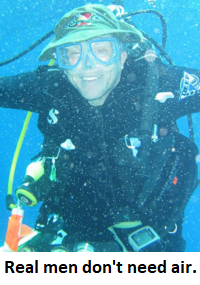In re race and the behavior of police:
Reporters and writers of editorials seem to lunge instinctively for the superficial, preferably embodied in easily remembered buzz phrases. One such is “racial profiling.” The implication, and assumption, is that blacks are being targeted for reasons of racial hostility by the police. Generally this isn’t true. If the writers knew it wasn’t true, I’d regard them as honest prevaricators. But I think a lot of them reflexively believe it. Let me tell you a story.
I was riding on Capitol Hill with a white cop who shall here be called Smith. We were in a black neighborhood. I was new to the beat and ignorant of the streets. We passed a beat-up car parked in front of a row house. It had Maryland tags. I didn’t notice this, being, again, blankly unaware of how things worked. It also had a white guy sitting in the driver’s seat, with a black guy next to him. Cops notice this stuff in a heartbeat.
Smith went around the block and pulled in behind the car. We got out. Smith started giving the white guy a very hard time. At this date I can’t begin to quote it verbatim, but it ran to, “What are you doing here? Huh? You wouldn’t be buying drugs, would you? You have a job? Where do you live? ”
The white guy was courteous and seemed taken aback by the definitely hostile questioning. Smith wasn’t being nice. The guy responded approximately, “Officer, I’m a working painter. I’ve got my tools in the trunk. I haven’t done anything. I’m just here to visit my friend.”
I thought I was seeing misconduct, verbal brutality or something. The guy hadn’t been doing anything wrong at all that I could see. Geez, was this what cops did?
Smith said, “What’s your friend’s name?”
The guy turned to the black guy next to him to ask.
Smith said, “No. Don’t ask him. You tell me your friend’s name.”
The white guy didn’t know his friend’s name. I began to sense that something might be wrong with this story.
Smith then asked, not in a real friendly way, whether he could search the guy’s car. The guy said yes. They do that. I guess they figure that saying No would be tantamount to a confession of wrongdoing. Smith got him to open the trunk. Sure enough, it was full of painting gear. The guy was protesting his innocence most plausibly.
Smith then went to the front, looked under the floor mat on the driver’s side and found-what do you know-a bag of cocaine.
Later I talked to Smith about the incident. (I was really dumb.) How had he known? Magic?
Nope. Profiling, if you want to call it that. Smith knew the streets. He had been on his beat for years. He knew that scruffy white boys, sitting in cars in Washington with tags from Maryland or Virginia, on a weekend, especially after payday, and talking with black guys in neighborhoods where whites just don’t go, are not there to discuss the legislative agenda of Congress. They are buying drugs.
He knew this from having seen it dozens of times over the years. It was a pattern-which is what a profile is. Now, when a pattern involves blacks, it is, to newspapers, “racial profiling.” When it involves whites, it’s a drug bust. But Smith had investigated this guy in part because he was white: Two black guys sitting in a car, in what was after all a black neighborhood, wouldn’t have gotten a second look from him.
Did this make Smith (himself white) a racist targeting whites? A black cop would have done the same thing: They too know how the streets work. For that matter, the “racial profiling” of drug dealers, who in Washington are usually black, is often done by black cops. Are Washington’s black officers racists targeting their own race?
No. They all know how to recognize perpetrators, or probably perpetrators, of certain kinds of crimes.
But there is no point at all in telling writers of editorials any of this. You don’t become an editorial writer by spending a lot of time in Anacostia or Green Valley or South Chicago, where the dealers work. To judge by reading, the more prestigious the paper, the less likely the editorial board to have been on the street in a recent decade. The New York Times seems to live in isolation, for example.

Reading your article has greatly helped me, and I agree with you. But I still have some questions. Can you help me? I will pay attention to your answer. thank you.
[…] Leaving Saigon xhttps://fredoneverything.org/leaving-saigon/ […]